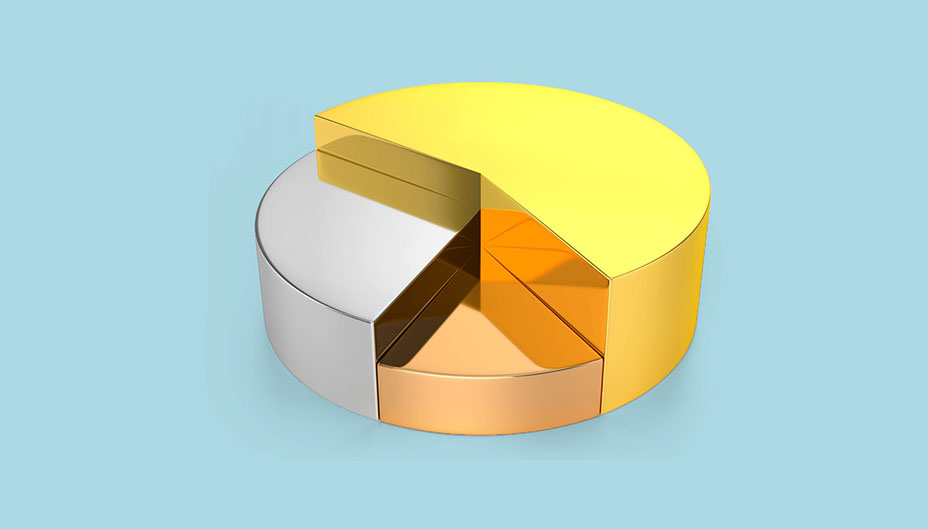What is Asset Mix?
Written by The Content Team
Published on May 22, 2018
minute read
Share:
Q: What is asset mix?
A: Asset mix refers to the mix of investments in your portfolio. That mix is generally created from the three main asset classes:
Equities (stocks) tend to offer the greatest long-term growth potential and can help you beat inflation; they also carry the most risk.
Fixed Income investments (bonds, some guaranteed investment certificates (GICs) and more) can help you preserve your capital and provide steady income.
Cash and cash equivalents offer security, but also liquidity so that you can take advantage of opportunities as they arise.
Why You Should Care:
Studies, including the landmark Determinants of Portfolio Performance paper published in 1986, suggests that your asset mix is the most important decision you can make in investing — even over choosing your specific investments like stocks, mutual funds, etc.
Key Points to Know:
- The main benefit is diversification, which is key to successful long-term investing. Since financial markets typically don't move in the same direction at the same time, investing in different asset classes may help you ride out market fluctuations. If some of your investments are performing poorly, stronger performers elsewhere in your portfolio may help balance things out.
- Asset mix should reflect your investor profile, taking into account the level of risk you're comfortable with, your investment goals and time horizon.
- Your asset mix can change — a rise or fall in market values may result in a drift away from your set asset mix, which can expose you to more risk than you originally intended. Changing life circumstances may also mean you want to revisit your asset allocation.
- The Portfolio Analyzer tool, found under My Portfolio, allows you to easily view your portfolio's mix of investments and monitor risk.
RBC Direct Investing Inc. and Royal Bank of Canada are separate corporate entities which are affiliated. RBC Direct Investing Inc. is a wholly owned subsidiary of Royal Bank of Canada and is a Member of the Investment Industry Regulatory Organization of Canada and the Canadian Investor Protection Fund. Royal Bank of Canada and certain of its issuers are related to RBC Direct Investing Inc. RBC Direct Investing Inc. does not provide investment advice or recommendations regarding the purchase or sale of any securities. Investors are responsible for their own investment decisions. RBC Direct Investing is a business name used by RBC Direct Investing Inc. ® / ™ Trademark(s) of Royal Bank of Canada. RBC and Royal Bank are registered trademarks of Royal Bank of Canada. Used under licence. © Royal Bank of Canada 2018. All rights reserved.
The views and opinions expressed in this publication are for your general interest and do not necessarily reflect the views and opinions of RBC Direct Investing. Furthermore, the products, services and securities referred to in this publication are only available in Canada and other jurisdictions where they may be legally offered for sale. If you are not currently resident of Canada, you should not access the information available on the RBC Direct Investing website.
Explore More

5 Ways to Get More Out of Your RESP
How can you make the most of this investment vehicle? We explain.
minute read

There's an ETF for That!
Find out more about the options that are out there
minute read

ETF Trends from the RBC Capital Markets Trading Floor – May 2025
Here’s what we saw on the trading floor in May 2025
minute read
Inspired Investor brings you personal stories, timely information and expert insights to empower your investment decisions. Visit About Us to find out more.







